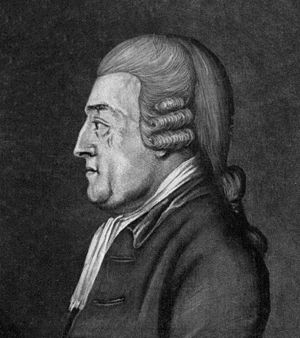Sir Robert Wilmot, 2nd Baronet facts for kids
Quick facts for kids
Robert Wilmot
|
|
|---|---|
 |
|
| Born | 1752 |
| Died | 23 July 1834 |
| Nationality | British |
Sir Robert Wilmot, 2nd Baronet (born around 1752 – died 23 July 1834) was an important person in British history. He inherited the title of Baronet from his father, Sir Robert Wilmot, who was the first Baronet of Osmaston Hall. His father also worked as a Secretary for the Lord Lieutenant of Ireland, a key government role.
Contents
Who Was Sir Robert Wilmot?
Sir Robert Wilmot was born the son of Sir Robert Wilmot, the first Baronet of Osmaston Hall. A Baronet is a special title, like a knight, that can be passed down in a family. Sir Robert was able to inherit this title because of a special rule made for his father. This rule allowed him to become the 2nd Baronet of Osmaston.
Sir Robert's Family Life
Sir Robert Wilmot married twice in his life. His first wife was Juliana Elizabeth Byron. They got married on 17 September 1783. Juliana was related to Admiral John Byron. She had been married before to her cousin, William Byron, who was a Member of Parliament (MP). Sir Robert and Juliana had one son together. Sadly, Juliana passed away in 1788.
Later, in 1795, Sir Robert married again to Mariana Howard. Mariana was the daughter of Charles Howard of Stafford. The next year, in 1796, Sir Robert had an important job as the High Sheriff of Derbyshire. This role meant he was the chief law enforcement officer in the county. Sir Robert and Mariana had four more sons and two daughters.
The Cope Estate and a Legal Case
Sir Robert Wilmot was chosen to inherit land and property from a general named Sir John Cope. Sir John Cope was a successful soldier who fought in big wars like the Spanish Succession and Austrian Succession.
Why Did Sir John Cope Choose Wilmot?
In 1758, Sir John Cope wrote to Sir Robert's father, the first Baronet. He said he wanted to leave his property to Sir Robert if his own children did not have children. Sir John also mentioned that his family had treated him badly. This might have been why he didn't want to leave his property to his own relatives.
Sir John Cope decided that Sir Robert would get to use his estate for his lifetime. After Sir Robert, his sons would inherit it. Sir John also set up a special fund for his son, John Metcalf Cope. This fund was for up to £3,000 to help John start a career.
The Legal Dispute
The people managing the fund used £1,000 to buy John Metcalf Cope a job in the army. They also spent about £93 on weapons and a horse for him. But soon after, John sold his army job and got into debt.
John Metcalf Cope then went to court, asking Sir Robert for the rest of the £3,000. Sir Robert's lawyers argued that the fund was only meant to be used if the managers thought it was proper for John's career. They said it was up to them, not a fixed gift.
However, the judge, Sir Thomas Sewell, disagreed. He said the £3,000 was a gift. He ordered Sir Robert to pay John the remaining £1906.17s.6d.
 | Claudette Colvin |
 | Myrlie Evers-Williams |
 | Alberta Odell Jones |

